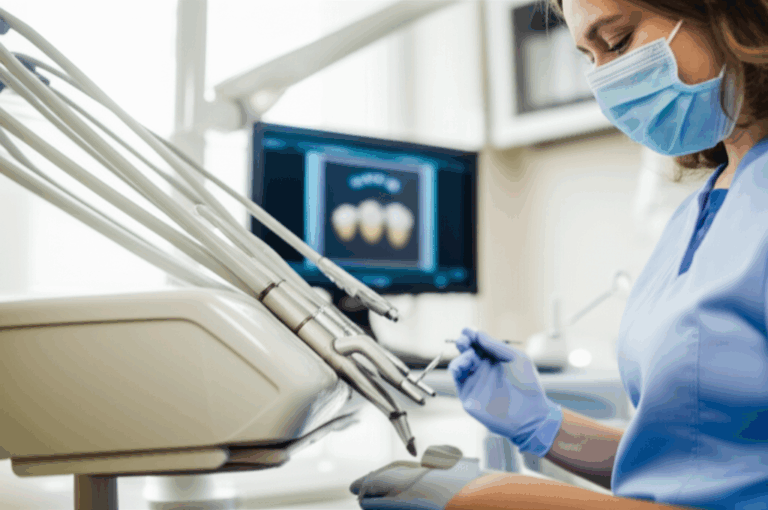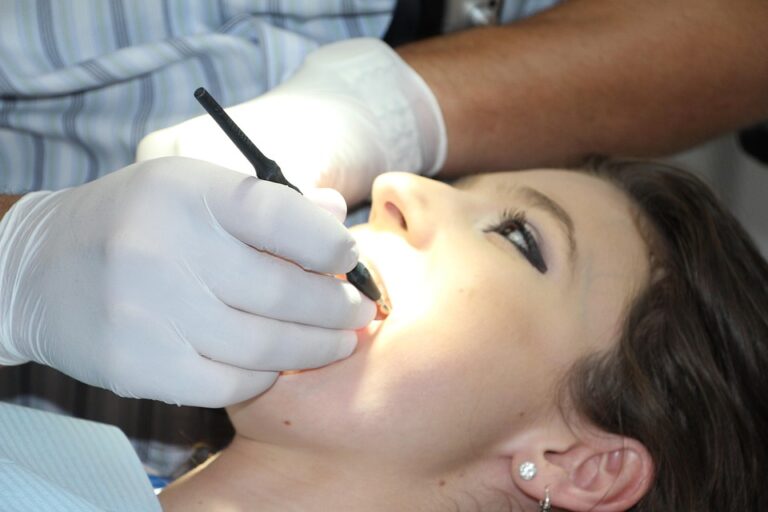
Can Dental Problems Lead To Heart Problems?
I used to think my mouth was its own thing, not connected to my body. Gums bleeding a little when I brush? I didn’t care. A toothache that kept coming back? I’d just take a pain pill and hope it go away. I was busy. I thought so long as my teeth wasn’t falling out, I was okay. But then I had a check-up, and my doctor said something that surprised me, and I knowed I was real wrong. This story is about that. It’s about the crazy connection, that science has proved, between your mouth health and your heart health. If you ever ignored a small teeth problem, you should read this. What I learned could change how you think about your health for good.
Article Outline
- The Conversation That Changed Everything: My Journey from Dental Neglect to Health Advocate
- Connecting the Dots: How a Problem in Your Mouth Travels to Your Heart
- Specific Heart Conditions with a Shocking Dental Link
- Are You at Risk? Key Factors to Watch For
- My Action Plan: A Simple Guide to Protecting Your Mouth and Heart
- Don’t Go It Alone: Building Your Health Team
- My Final Thoughts: Your Mouth Is the Gateway to Your Body
The Conversation That Changed Everything: My Journey from Dental Neglect to Health Advocate
It all started simple. I was at my yearly check-up, and my doctor, he’s nice but he tells you straight, was looking at my blood pressure. It was a bit high. He asked the normal questions about food and exercise. Then he just asks, “When was your last teeth cleaning?”
I blinked. “Uh, maybe two year ago? I been busy.” I said, feeling like I had to defend myself.
He leaned back in his chair and looked at me thoughtful. “I want you to think of your body like it’s all one thing,” he said. “You wouldn’t ignore a little fire in your basement and hope it don’t burn down the whole house, right?”
I shook my head no.
“That’s what you might be doin with your mouth,” he said. “Soreness in your gums that don’t go away, from gum disease, it don’t just stay in your mouth. It can make problems for your whole body, and your heart is one of the biggest things it can hurt.”
That talk was like a punch to the gut. A little fire in my basement. It was a simple comparison, but it made so much sense. For years, I had saw my bleeding gums sometimes and bad breath that wouldn’t go away was just a small problem. I never, not once, thought it could be a warning for something bad like heart disease.
That day I went home and started looking up everything. I read stuff from big health groups and doctors for the heart and gums. The more I read, the more I seen it was true. The link wasn’t some crazy idea, it was a real medical fact. My doctor wasn’t just giving me a friendly tip; he was giving me a big warning. This was my wake-up call to stop treating my mouth health like it didn’t matter and start seeing it for what it is: a very important part of my whole health.
Connecting the Dots: How a Problem in Your Mouth Travels to Your Heart
When I started looking, I saw the link is not so confusing. It’s really about two bad guys that use your mouth to get into your body: swelling and germs. Let’s explain how this works so it’s easy to get.
The Bad Guy: Swelling
Think about when you get a cut. It gets red and puffy and warm. That’s swelling. It’s how your body is suppose to react to a cut or infection, sending white blood cells to the spot to fight germs and start healing. This is good for a little while.
Now, think about that in your mouth, all the time. This is what you get with gum disease.
It usually starts with gingivitis, the first step where your gums might be red, puffy, and bleed easy. I used to think that was normal. It ain’t. It’s the first warning sign. If you ignore it, like I did, it can get worse and become periodontitis.
Periodontitis is a real bad gum infection that hurts the soft parts of your gums and, if you don’t treat it, can even eat the bone that holds your teeth. In periodontitis, your gums pull back from your teeth and make little pockets. These pockets is a great home for bad germs, and they are always infected.
Your body thinks it’s being attacked all the time, so it keeps the swelling turned on. This is called chronic inflammation. The problem is, the chemicals that cause the swelling don’t just stay in your gums. They get into your blood and go all over your body.
My doctor’s comparison was perfect: it really is like a small fire that don’t go out. This long-time, small swelling can bother your blood veins, including the ones that go to your heart. Over time, this can hurt the inside of your veins, making them more easy to get other problems.
The Helper: Germs on the Go
The second part of the problem is the germs themselves. Your mouth has lots of kinds of germs. Most are fine, but the ones that cause gum disease are a real mean group.
When your gums are healthy, they are a tight wall around your teeth. But with periodontitis, them sore, bleeding gums are like a leaky door. Every time you brush, floss (or don’t), or even just chew, you can push them germs right into your blood.
When they’re in your blood, these germs can go anywhere in your body, even to your heart. Smart people have found mouth germs, like Porphyromonas gingivalis (a main one in periodontitis), inside the gunk in people’s heart veins.
Think of these germs like little troublemakers. They get a ride in your blood and can stick to the fat stuff already building up in your veins. When they are there, they can make more swelling, which makes these gunk piles get bigger and more unstable. This is the straight line that turns a teeth problem into a big heart danger.
Specific Heart Conditions with a Shocking Dental Link
It’s one thing to talk about swelling and germs. It’s another thing to see exactly how they can lead to dangerous heart problems that can kill you. This is the part of what I read that really scared me to do something.
Atherosclerosis: When Your Veins Get Hard
Atherosclerosis is a problem where gunk—made of fat, cholesterol, calcium, and other stuff—builds up in your veins. This gunk makes your veins hard and skinny, which stops blood with oxygen from getting to your organs, including your heart.
So, how does gum disease make it worse?
- Swelling Starts It: The swelling from your gums that don’t get better adds to swelling in your blood veins. This vein swelling is a big reason why atherosclerosis starts and gets worse. It’s like throwing gas on a fire.
- Germs as a Building Part: Like I said, mouth germs can go to the veins and get stuck in the gunk. When they are there, they can make your body fight back, which cause even more swelling right where the gunk is. This helps it get bigger and more dangerouser.
It’s a bad loop. Your gum disease makes swelling that helps gunk grow, and the germs from your gums can make that gunk worser.
Endocarditis: A Heart Infection
This is maybe the most simple link to understand. Endocarditis is an infection of the inside lining of your heart’s rooms and valves (the endocardium).
It happen when germs from another place in your body, like your mouth, get in your blood and stick to hurt parts of your heart. Them bleeding gums from periodontitis are a perfect way in.
While endocarditis is not common for people with healthy hearts, it’s a big worry for anyone who already has heart problems, like bad heart valves or fake valves. For them people, good dental care is not just a good idea—it’s a super important way to stop it before it starts that their heart doctors will tell them to do.
Stroke and Heart Attack: The Biggest Danger
This is where it gets really bad. A heart attack is when blood can’t get to the heart, usually because of a blood blob. A stroke is like that, but the blood is blocked from getting to the brain.
The long-time swelling and germs from gum disease can make the gunk in your veins not stable. Unstable gunk is more likelier to break open. When this happen, your body tries to fix it by making a blood blob to “heal” the break.
But if that blob is big enough, it can block the whole vein that was already skinny.
- If this is in a vein to your heart, it cause a heart attack.
- If the blob breaks off and goes to the brain, or if something like that happens in a vein to the brain, it cause an ischemic stroke.
The idea that not flossing could help cause a chain of events that ends in a heart attack or stroke was the last thing I needed to hear. I made a dentist appointment for the next day.
Are You at Risk? Key Factors to Watch For
After I freaked out, I started thinkin more real. Who is in the most danger? The answer is anyone can have this problem, but some things make the danger go way up. I saw I had a few of these myself. See if these sound like you:
- You Don’t Listen to the Warnings: This was me. If you see blood in the sink when you brush, have bad breath all the time that mouthwash don’t fix, or your gums look red and puffy, you are seeing the first signs of gum disease. Not doing nothing is the biggest risk of all.
- Not Going to the Dentist Much: If you was like me and think going to the dentist is something you can just put off for years, you are not seeing the whole picture. Only a professional cleaning can get off tartar (that’s plaque that got hard), and only a check-up can find periodontitis before it gets real bad.
- Bad Habits at Home: Brushing just once a day, or not at all, and thinking floss is for other people is just asking for plaque to build up. Good, daily dental care at home is the best way to start fighting back.
- You Smoke: Smoking is one of the biggest things that makes you get gum disease. It makes your body weaker so it’s harder to fight a gum infection. It also makes the doctor’s help not work as good. If you smoke, your risk for the teeth-heart problem is way higher.
- You Have Other Sicknesses: Some sicknesses make a real bad situation. Diabetes, for example, makes it harder for your body to fight infections, so gum disease is more common and worse. Since diabetes and gum disease are both connected to heart disease, having both is double bad.
- Heart Problems in Your Family: If heart problems is in your family, you should be even more careful to control every risk you can, and that for sure includes your mouth health.
My Action Plan: A Simple Guide to Protecting Your Mouth and Heart
Being scared was one thing; doing something was another. I made a simple plan for myself with no excuses. This ain’t hard stuff. It’s about making good habits that you do all the time to protect your mouth and your heart.
Step 1: Getting Your At-Home Teeth Care Right
This is the base for everything. You can’t pay someone to be healthy for you.
- Brush Good, Not Too Hard: I learned I was brushing wrong. You ain’t trying to scrub the white stuff off your teeth. You’re trying to gentle get all the plaque off. I got a soft toothbrush and I make sure to brush for two whole minutes, two times a day. I used a timer on my phone first to get used to it. I focused on putting the brush at a 45-degree angle to my gums.
- Make Flossing a Must-Do: I used to hate to floss. It felt like a job. Now, I see what it is: it cleans the 35% of your teeth your brush don’t get. I started by saying I would floss just one time a day, every single night. It got to be a habit, like locking the door.
- Think About Mouthwash: After you brush and floss, a mouthwash that kills germs can help get rid of more germs in your mouth. It’s not as good as brushing and flossing, but it’s a good helper.
Step 2: The Help from Dentist Cleanings and Check-ups
This is when you get the pros to help. I now make my cleanings every six months and I put them on my calendar like any other real important meeting.
When you get a cleaning, the person cleans off the tartar, the hard plaque you can’t get off at home. This is super important to stop gum disease. The dentist also does a good check, looking for early signs of problems like deep gum pockets, cavities, or other issues. My new dentist gave me so much good teeth information that I finally got what was happening in my own mouth.
When I first went back, I had a bad case of periodontitis that needed a “deep cleaning” (scaling and root planing) to get it fixed. It wasn’t fun, but it had to be done to stop that little fire. Sometimes, if a cavity is too bad, you might need fixing work like a crown. My dentist told me how much new dentistry has changed. He even said how a digital dental lab can use pictures of your mouth to make crowns that fit perfect. That was real interesting to me. It made me see that stopping problems is so much more easier—and cost less—than fixing them.
Step 3: Eating Right for Your Mouth and Heart
You can’t have a healthy body if you eat bad food. I made some easy changes that worked good.
- Less Sugar and Sour Foods: Sugar is the best food for the germs that make cavities and gum disease. Eating less sugary drinks, candy, and white carbs helps starve them.
- Eat a Good Diet: I tried to eat more green vegetables, crunchy veggies (they help clean teeth), and foods with lots of Vitamin C, which is real important for gum health.
- Quit Smoking: If you’re a smoker, this is the number one best thing you can do for your mouth and your heart. For real. It’s hard, but it’s worth it so much.
Don’t Go It Alone: Building Your Health Team
One of the biggest lessons I learned is that health is a team game. Your mouth ain’t separate, and your doctors shouldn’t be neither.
I made sure my main doctor and my dentist talked to each other. I told my dentist about my high blood pressure and that heart disease is in my family. This gave him the whole story and showed him it was real important to fix my periodontitis good and hard.
I also told my doctor I had periodontitis and what I was doin to fix it. He was happy and said that getting the swelling in my mouth fixed was just as important as watching my food and exercising for my heart health. This kind of open talking makes sure everyone on your health team has all the info they need to give you the best care they can.
My Final Thoughts: Your Mouth Is the Gateway to Your Body
My journey started with one surprising question from my doctor and ended with a whole big change in how I see my own health. I don’t see my mouth as a separate island no more. I see it as the door to my whole body—a super important guard post that can either keep me safe or put me in danger.
Taking charge of my teeth health has made me feel like I have power. It’s one of the most real things I can do every day to make my risk for heart disease lower. The bleeding gums is gone. The worry about bad breath is gone. And now I have a good feeling that comes from knowing I ain’t ignoring a little fire in my basement no more. I’m taking care of my whole house, from the bottom up.
If my story sounds like you, please, don’t wait for a doctor to give you a wake-up call. Look in the mirror. Be honest about what you do. And make that dentist appointment you keep putting off. It ain’t just about your teeth; it’s about your life.








